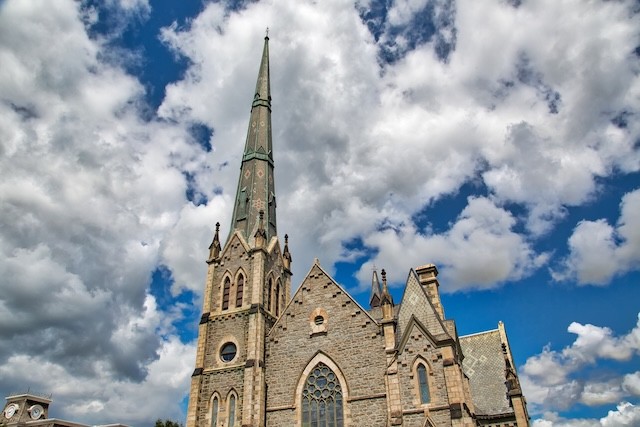
-
May9Fri
Safeguarding the Vulnerable: Why Canadian Churches Must Prioritize Abuse Prevention
May 9, 2025 Elijah-Lovkoff
Elijah-LovkoffIn recent years, the Canadian Church has come under increased scrutiny regarding its response to allegations of child abuse and clergy sexual misconduct. These incidents are not only morally reprehensible and spiritually devastating—they also carry serious legal and financial implications. Churches are entrusted with the care of the most vulnerable among us. To honour that trust and walk in obedience to Christ, it is imperative that churches in Canada implement strong safeguarding protocols.
A Sobering Case Study
Consider the case of Father Brian Boucher in Montréal, Québec. In 2019, Boucher was sentenced to eight years in prison for sexually abusing boys over a span of 20 years. Reports indicated that concerns had been raised to church authorities on multiple occasions, but no decisive action was taken until many years later. The case not only highlighted failures in internal accountability but also underscored the lifelong trauma victims suffer. Civil lawsuits followed, and the Church’s credibility was severely damaged. This is just one of many examples where the absence of proper safeguards allowed abuse to persist unchecked.
A Biblical Mandate
Scripture offers clear instruction regarding our responsibility to protect the vulnerable. Jesus’ words in Matthew 18:6 are stark: “If anyone causes one of these little ones—those who believe in me—to stumble, it would be better for them to have a large millstone hung around their neck and to be drowned in the depths of the sea.” The Church is called to be a sanctuary, not a place of harm.
In Micah 6:8, believers are reminded to “act justly and to love mercy and to walk humbly with your God.” Justice includes protecting children, reporting wrongdoing, and establishing structures that prevent harm. Safeguarding is not just a legal obligation—it is a spiritual responsibility.
Legal and Insurance Responsibilities
Canadian law requires the mandatory reporting of suspected child abuse. Every adult in Canada, particularly those in positions of trust, must report reasonable suspicions to child protection authorities. This duty overrides confidentiality agreements and organisational hierarchies. Churches that fail to report abuse can be held legally liable.
Insurance companies are increasingly requiring churches to meet stringent abuse prevention standards before providing coverage for abuse claims. Since 1996 insurance companies in Canada have adopted an exclusion clause for abuse coverage. Failure to comply to the following standards limit a church’s ability to qualify for abuse coverage and may result in denied claims or the loss of coverage altogether. Insurers demand evidence of:
- Documented safeguarding policies
- Clear definitions of abuse and the various categories of abuse and maltreatment
- Comprehensive screening, including background checks for all staff and volunteers
- Initial orientation and annual refresher abuse prevention training
- Appropriate protocols and procedures for supervision and interaction with the vulnerable sector
- Premises modified to mitigate the risk of abuse
- Compliance with legal requirements for reporting and responding to allegations and disclosures of abuse
Creating a Culture of Protection
Safeguarding is not simply about policies—it is about creating a culture where abuse is neither tolerated nor concealed. This includes empowering victims to speak up, encouraging bystanders to report concerns, and training leaders to respond with trauma-informed compassion and resolve.
Pastors and boards must take proactive leadership in prioritising protection, not just as a risk management strategy but as a gospel imperative. Abuse prevention is an act of love, justice, and obedience to Christ.
Help Is Available
The good news is that churches do not have to navigate these challenges alone. Trusted organisations exist to equip churches with the tools, policies, training, and support needed to achieve a high standard of protection. Partnering with experts who understand legal obligations, insurance requirements, and biblical principles ensures that your church can create a safe environment while staying compliant and proactive. Collaboration with safeguarding professionals helps lighten the load and build confidence in your ministry’s ability to protect those in its care. It will also help churches stay abreast of the ever changing standard of care, expected of churches.
Conclusion
Canadian churches must do more than hope that abuse won’t happen—they must actively work to ensure it doesn’t. By implementing strong safeguarding protocols, meeting legal and insurance requirements, and adopting the high standards noted above, churches demonstrate a commitment to protecting the vulnerable and honouring God’s call to shepherd His people faithfully.
This article was written by Dr. Melodie Bissell, Chair and Sr. Safeguarding Consultant at Plan to Protect®. Visit Plan to Protect® on the web at www.plantoprotect.com



Leave a Comment